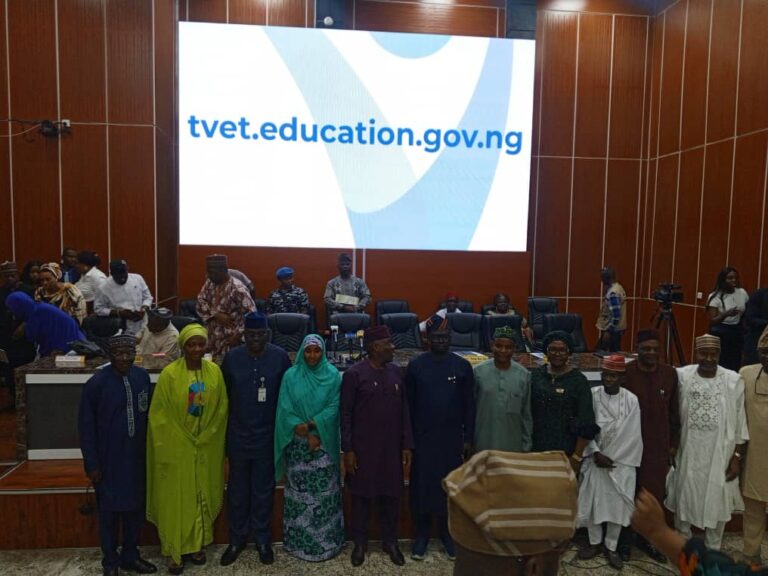By Atoyebi Nike
The Federal Government has officially launched a nationwide Technical and Vocational Education and Training (TVET) initiative aimed at equipping over five million Nigerian youths with industry-relevant and globally competitive skills over the next few years.
Announcing the programme at a launch event in Abuja, the Minister of Education, Dr. Tunji Alausa, said the initiative is part of efforts to address the high youth unemployment rate, which currently stands at 53 percent.
“With a population of over 220 million and a youth demographic accounting for 70 percent, Nigeria must invest in practical, globally competitive skills to drive productivity and reduce unemployment,” Alausa stated.
The TVET scheme will train participants across 29 skill categories, including agriculture, renewable energy, construction, digital media, automobile technology, and fashion. The training is open and free to all Nigerian youths through an online portal activated at the launch.
Dr. Alausa said the government selected these sectors based on a comprehensive labour market analysis and consultations with key stakeholders in the private sector.
Stipends and Industrial Support
To support the programme, the Federal Government will provide a monthly stipend of ₦22,500 to each trainee to cover transport and basic needs. Accredited private training centres and master artisans will receive ₦30,000 per trainee monthly to mentor participants and ensure quality delivery.
Upon completion, trainees will receive starter kits and gain access to single-digit interest soft loans from the Bank of Industry to launch their businesses.
“This is not just training for training’s sake. It’s about enabling the youth to become self-reliant and contribute to the economy immediately after graduation,” the Minister added.
Monitoring, Transparency and Free Technical Education
To ensure accountability, the government will deploy geofencing technology and NIN-based verification to monitor student attendance and performance. Programme operations, including stipend disbursement and training centre payments, will be managed through the NELFUND platform.
Dr. Alausa also announced the introduction of free education for students in all federal and state-owned technical colleges, covering tuition, accommodation, and meals. Students will also receive the ₦22,500 monthly allowance.
Stakeholder Reactions
The Executive Secretary of the National Board for Technical Education (NBTE), Prof. Idris Bugaje, called for greater synergy by consolidating all TVET efforts under the Ministry of Education. He also advocated for a ₦70,000 monthly training wage to encourage enrolment in vocational programmes.
“This programme aligns with international best practices. Nations like Germany, China, and South Korea leveraged TVET to power industrial development. Nigeria can do the same,” Bugaje said.
One of the prospective beneficiaries, Toyesin Adisa, who applied for the livestock farming track, expressed optimism about the opportunities the programme offers.
“I’m hopeful that this training will help me become self-employed and support my family,” she said.
New Path for Youth Empowerment
Analysts have described the initiative as a timely and strategic intervention to bridge Nigeria’s skills gap and reduce dependency on white-collar jobs.
“The combination of vocational training, stipends, and soft loans could drive micro-enterprise growth and unlock the economic potential of millions,” a development economist said on the sidelines of the launch.
